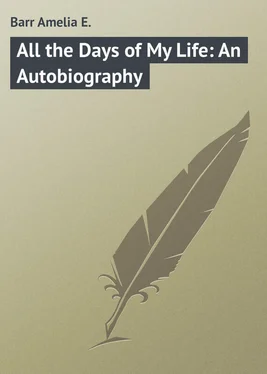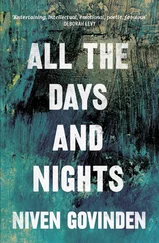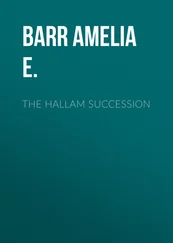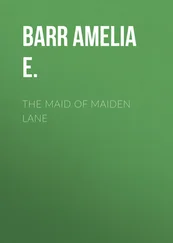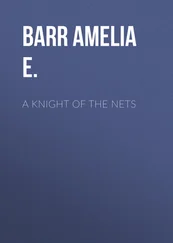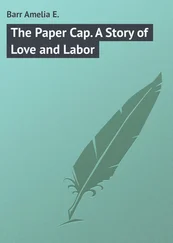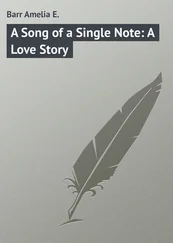Amelia Barr - All the Days of My Life - An Autobiography
Здесь есть возможность читать онлайн «Amelia Barr - All the Days of My Life - An Autobiography» — ознакомительный отрывок электронной книги совершенно бесплатно, а после прочтения отрывка купить полную версию. В некоторых случаях можно слушать аудио, скачать через торрент в формате fb2 и присутствует краткое содержание. Жанр: foreign_prose, foreign_language, на английском языке. Описание произведения, (предисловие) а так же отзывы посетителей доступны на портале библиотеки ЛибКат.
- Название:All the Days of My Life: An Autobiography
- Автор:
- Жанр:
- Год:неизвестен
- ISBN:нет данных
- Рейтинг книги:5 / 5. Голосов: 1
-
Избранное:Добавить в избранное
- Отзывы:
-
Ваша оценка:
- 100
- 1
- 2
- 3
- 4
- 5
All the Days of My Life: An Autobiography: краткое содержание, описание и аннотация
Предлагаем к чтению аннотацию, описание, краткое содержание или предисловие (зависит от того, что написал сам автор книги «All the Days of My Life: An Autobiography»). Если вы не нашли необходимую информацию о книге — напишите в комментариях, мы постараемся отыскать её.
All the Days of My Life: An Autobiography — читать онлайн ознакомительный отрывок
Ниже представлен текст книги, разбитый по страницам. Система сохранения места последней прочитанной страницы, позволяет с удобством читать онлайн бесплатно книгу «All the Days of My Life: An Autobiography», без необходимости каждый раз заново искать на чём Вы остановились. Поставьте закладку, и сможете в любой момент перейти на страницу, на которой закончили чтение.
Интервал:
Закладка:
During the Christmas holidays of this year, 1844, my brother Henry was born. We welcomed him as a gift and a compensation, and the shadow of suffering and death passed gradually away. After the holidays I went to a fashionable school kept by Miss Penelope Flinders. I only remained there three months, and, as far as study was concerned, they were of little service to me; for Miss Flinders had a lawsuit in progress at this time, and she made me her confidant, and discussed endlessly the pros and cons with me. I was very sorry for her, and feverishly anxious that she might succeed. She told me that her lover had been prevented from marrying her by the bitter opposition of his mother; that he had left England in consequence, and, when dying in India had made a will, leaving every shilling of his wealth to her. The mother was fighting the carrying out of this will, and Miss Flinders could not sleep or eat, and how, then, could she teach pending the court’s verdict? One morning I went to school a little late, and found the class rooms empty. The school had been dismissed forever. She had won her case. I sat and talked with her a long time, and she told me she would never teach another hour, for she had now five thousand pounds a year to be happy with.
I went to no other school, but I read a great deal, and kept up the practice of my music and drawing. There was a good public library, and there was my father’s library, and the public one suited me best now; for I wanted Scott, Dickens and Thackeray, and I also read many novels by Mrs. Gore, a writer nearly forgotten, but whose pictures of the lives led by the highest society of that day were interesting and instructive. One day Mr. Punshon was sitting in our parlor when I came in with my hands full of books. He looked at them and asked, “Does your father know, Amelia?” I answered, “No, but Mother does. She says it is right. We do not trouble Father about little things. He is not very well lately.”
“Amelia,” he continued, “I want some books out of the library, but I do not like to go for them.”
“Novels?” I asked.
“Yes,” he answered.
“I will get them for you. I am sorry for people who want novels, and do not feel able to ask for them.”
He said something about his position, and my father not liking him to go to a public library for novels, and I understood the situation. I wonder now why I did not fall in love with him. He could be so charming, and I certainly thought his recitations marvelous, and his own poetry full of genius. But I liked Tom Huddleston in his open collar, and sailor jacket, with a sailor’s song on his lips, far better. Once I wondered about it to Jane, and she looked at me incredulously, if not scornfully, as she answered, “The idea of being in love with Mr. Punshon!”
“Why not?” I demanded.
“For one thing, Milly, he does not wear straps.” Gentlemen at that time wore their trousers strapped down under their feet. “His trousers are sloppy, and he looks quite common.”
“He is handsome,” I returned, “and he has fine eyes, and beautiful brown hair; it is curly, too.”
“I dare say he puts it in papers every night. Miss Annie Townley thinks so. But if he was ten times as handsome, I would not marry him. He is a Wesleyan preacher, and could never give his wife a home of her own. I hate living in a Chapel House.”
Under conditions and surroundings like these, our lives went on. John was dying daily, and Mother was very anxious about Father, who seemed possessed by a never ceasing passion for preaching. It appeared to her, that he worked and preached as if he feared he would not have time to say all he wanted to say. The “sensations” of which he had complained at intervals, grew more frequent, and in the autumn of our second year in Whitehaven, he partially lost the use of his right hand. Then I wrote his letters and sermons as he dictated them to me. But, oh, how it pained him! I could not bear to see the sorrow in his eyes, and what was coming he knew not; for the doom that walks by our side from the cradle to the grave, never warns us. At this time of my life my thoughts turn to his memory with a great tenderness. His heart was then given to all humanity, his soul was all God’s, and his life but a flesh and blood conductor of eternal spirit.
At the close of the second year, John died after great suffering, and he was laid among his kindred in a small cemetery in Charles Street. As a burial ground it was no longer used, except by the families who had originated it more than one hundred years previously. It was a neglected enclosure, over-grown with tall grasses and rank weeds, and surrounded by the decaying untidy houses of poverty. A more dreary, ghastly place I never saw, and my heart ached for the little lad laid there. I was thankful my mother was too ill to go to the mournful service, but Father was consoled by the fact, that he was among his kindred; and it seemed to me, there was no one but Huddlestons buried there. Every stone I read was in memoriam of a Huddleston, and always that same persistence of the name “Henry.”
Not more than a month afterwards, our baby Henry was laid beside his brother in the desolate place. I have no heart to write of his death. He was taken in the midst of health, and went laughing to seize the bowl of boiling milk, from which he drank a cruel death. It is better to be silent about such calamities; at the time we were all dumb with grief. Yet it was an accident, and accident is always God’s part in any event; so to this knowledge we bowed our hearts in submission. There is a difference, however, in silence. Mother’s quiet was full of heavenly hope and trust; Father’s speechless, tearless grief, was almost despair, and many times afterward, I heard Mother rejoice over a trouble treading close upon Henry’s death, because it roused the physical man to wrath, and broke up the spiritual torpor into which Father had fallen.
This trouble came in a letter, which was handed into the parlor where we were together one afternoon three weeks after Henry’s death. Mother and Jane were sewing. I was copying music – a song of Balfe’s, I believe, and father was walking up and down – up and down the room. All was so still I could hear the ashes dropping from the grate to the hearth. Then came the postman’s knock, and the delivery of the letter to Father.
He read it without a word, growing every moment grayer and more angry. As he finished, he slowly tore the paper into fragments, his passion growing with every movement of his hands, and stamping on them, gave way to an inconceivable rage, accompanied by words that shocked and terrified us. It was not Father, it was some madman who had taken possession of him. Mother went to him, put her hands on his shoulders, and said softly, “William! William!”
“Mary! Forgive me!” he cried. “You see now, what I have to struggle against. Every day I have this temper to fight; it will conquer me some time, and then I shall be lost – but this trouble is my own fault. You have warned me, and I would not listen to you. Yes, I have been warned twice by dreams I understood, but would not obey. If I could suffer alone! If I could suffer alone, I would not care. It is my great punishment. You and the children must suffer with me.”
“What punishment? What has happened, William?” asked Mother.
“I have lost every shilling. That scoundrel Philip Blackpool has gone to Australia with my money, a month ago.”
“My dear, we can live without it.”
“We cannot live without it, Mary,” he answered. “What is the good of talking nonsense?”
Then Mother was silent. She sat down and lifted her work, Jane followed her example, and I went on copying my song, while from the next room came the faint sounds of Alethia and Mary playing. Before our silence and assumed indifference his anger waned; he said again, “Forgive me, Mary! I will go to my study now, and come down when I am better. Disturb me for nothing.”
Читать дальшеИнтервал:
Закладка:
Похожие книги на «All the Days of My Life: An Autobiography»
Представляем Вашему вниманию похожие книги на «All the Days of My Life: An Autobiography» списком для выбора. Мы отобрали схожую по названию и смыслу литературу в надежде предоставить читателям больше вариантов отыскать новые, интересные, ещё непрочитанные произведения.
Обсуждение, отзывы о книге «All the Days of My Life: An Autobiography» и просто собственные мнения читателей. Оставьте ваши комментарии, напишите, что Вы думаете о произведении, его смысле или главных героях. Укажите что конкретно понравилось, а что нет, и почему Вы так считаете.
